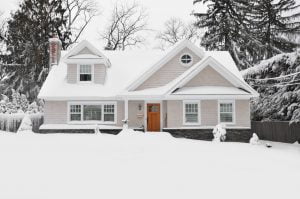If your home isn’t cooling off like it should, even with the air conditioner running at full blast, there’s a good chance a coolant leak is to blame. Air that seems warmer than normal, a decrease in airflow coming from the HVAC system’s registers, and a hissing sound are all telltale signs of a coolant leak.
A technician who is experienced in central air conditioning repair should be able to quickly diagnose a coolant leak, but fixing the problem involves more than just pouring additional refrigerant into the air conditioning system.
Learn how central air conditioning repair experts recommend fixing coolant leaks, and what homeowners should do if they suspect they have a problem.
What Causes A/C Coolant Leaks?
Coolant leaks can occur for any number of reasons. In a newer unit, the most likely reason why a coolant leak would occur is because the unit was not installed properly to begin with or because of a factory defect that was previously undetected.
Another potential cause of A/C coolant leaks is HVAC damage. Maybe the system was installed correctly, but the components have started to fail over time. Or, the exterior HVAC unit might have been hit by a lawnmower or a child playing with a ball outside.
In older units, it is not uncommon to see formic acid or formaldehyde corrosion cause coolant leaks. As formaldehyde corrosion occurs, acid slowly eats away at the metal and the HVAC unit begins to release coolant into the atmosphere.
What Are the Signs of an Air Conditioning Coolant Leak?
The most common signs of an air conditioner coolant leak are as follows:
Warm Air Coming From Registers
The first sign of an air conditioning coolant leak is warm air coming from the system’s registers. Refrigerant should be absorbing the heat from the home and releasing it outside, but when refrigerant levels are decreased because of a leak, it takes longer to cool down the home.
Hissing Sounds
A HVAC unit that is working properly should never make hissing noises. If you hear these sounds, there is a good chance your central air conditioning system is in need of repair and you should call an HVAC technician right away.
Frozen Coils
A decrease in refrigerant levels below the acceptable standards often leads to evaporation coils that don’t adequately absorb heat. When this happens, the condensation on the coils will freeze. Frozen coils are a major issue, and one that a central air conditioning repair technician needs to take a look at to diagnose.
How Are Coolant Leaks Repaired?
Coolant leaks are more than just a simple annoyance. Coolant leaks can actually be dangerous, as the coolant is toxic to humans and the environment. Thankfully, a technician who specializes in central air conditioning repair should be able to diagnose this type of problem very easily with an electronic leak detector test. This type of test is the most cost effective way to find a coolant leak. Other tests that central air conditioning repair technicians can run include nitrogen leak detector tests, bubble tests, and dye testing.
How the technician repairs the leak will depend on the root cause. If the leak is caused by corrosion, then the technician may simply replace the damaged components. Or, depending on the amount of damage, an entirely new air conditioning unit may be warranted.
At Air Technical Services, we handle all types of air conditioning system repairs. If you suspect that your A/C is leaking coolant, give us a call right away at 609-494-1400 or schedule an appointment for an on-site estimate.
Air Technical Services: Expert Central Air Conditioning Repair
As the most trusted heating and central air conditioning specialists in LBI, Air Technical Services has been working closely with New Jersey homeowners for more than two decades. Let us help you find comfort in your home, regardless of the season.




